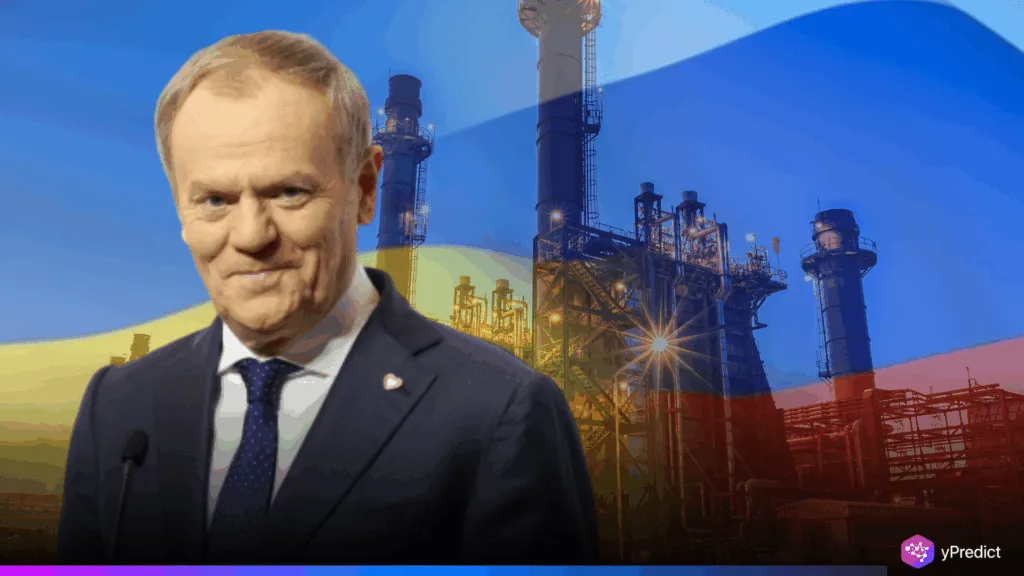
European gas prices fell after Polish Prime Minister Donald Tusk hinted the war in Ukraine might soon see a pause. On the last day of August contract trading, futures fell as his statement stoked hopes of ceasefire negotiations. Additionally, as U.S. pressure on Moscow increased, the market’s reaction indicated a possible de-escalation. Consequently, as energy markets closely monitor it, any resolution could alter gas flows and price expectations across the coast.
Can Tusk’s Words Move European Gas Prices?
Tusk’s comments in Warsaw were immediately interpreted by merchants as a prelude to possible negotiations. Futures showed a shift in sentiment after rising 2.6% at first and then falling. Additionally, this market volatility was a reflection of the growing optimism that ceasefire negotiations, even informal ones, may be progressing.
Traders closing out monthly positions gave the reaction more weight due to the timing. Furthermore, even cautious optimism was sufficient to change market dynamics because gas prices are extremely sensitive to political cues. Thus, Tusk’s comments pressed Moscow to de-escalate and were consistent with recent diplomatic statements from Washington.
Will Energy Markets Adjust to Supply Shocks?
Energy markets have changed since early 2022 as a result of Europe’s move away from Russian gas. A vital export route was lost by Russia in January 2025 when Ukraine refused to extend its transit agreement with Gazprom.
The EU has increased LNG imports from allies like the US and Qatar and pipeline deliveries from Norway as a result. The market remains susceptible to changes in geopolitics, despite officials’ assertions that infrastructure can now adapt to changes in supply. Additionally, recent pricing reflects this fragility, as news of potential peace caused European gas prices to spike.
Ceasefire Talks Raise Doubts Among Analysts
Markets praised Tusk’s comments, but analysts caution against expecting a quick fix. Even without formal ceasefire talks, Ukraine remains firm in its demands. Infrastructure damage, such as the Nord Stream sabotage, restricts the amount of gas that can flow even with an agreement. Furthermore, Goldman Sachs says that a full recovery is unlikely soon. A partial return could also result in a 15% drop in gas prices in Europe.
European Gas Prices Fall but Risks Still Persist
Tusk’s remarks eased pressure on energy markets by giving rise to conjecture that ceasefire negotiations might start shortly. The European gas price drop shows how quickly traders respond to possible peace signals. However, these actions remain more emotionally driven than rationally driven in the absence of concrete agreements. Because of Europe’s diverse energy supply, stability has increased, but risk remains high. Markets will continue to watch for any major shift in the conflict’s character as diplomacy moves forward.







